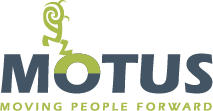“In life, don’t just create an impression, create a trust.” This was on the tag of a delicious tea I was drinking recently and it got me thinking. It’s a great reminder, but when most of our day-to-day interactions at work are digital, how do you build trust with those you work closest with? Even with people you know well, sometimes you receive an email with odd punctuation placement that sends you spiraling. What is that supposed to mean? Are they mad? Ambiguous emails aside, many people lack the soft skill of relationship building. The base layer of building any relationship is, as cliché as it sounds, a solid foundation of trust.
So, how do we do that? With face-to-face interactions away from the screens. Here’s a brief road map to get you started in establishing trust in the workplace:
Meet people at their level. First and foremost, it’s important to understand that different people will require different kinds of attention. In the beginning, it’s good to pay attention to body language and how each person communicates because not every approach will work with everyone. Maybe Bill in accounting is on the quieter side, while Kathy in marketing is a social butterfly. You likely will not get to know Bill very well in a big group setting given his introversion. A better option would be walking to get a cup of coffee or lunch, allowing for some one-on-one time to develop a relationship. On the other hand, Kathy would probably enjoy going out with the team for happy hour! You just have to find each person’s individual comfort level and cater to it.
Make your actions match your words and be consistent. A surefire way to lose someone’s trust is to have a big talk and no follow through. You have to show people they can rely on you. So, show up and do what you say you’re going to do – and be consistent. Consistency is key to building trust, whether they need a project finished or just a second opinion. It’s hard to know when you can depend on someone who doesn’t necessarily have the best track record.
Give the benefit of the doubt. Another good way to diminish a working relationship is to play the blame game. It never feels good when your coworker or your boss blames you for a misstep without hearing the full story, right? Being part of a team means you take care of your own first, and move on with solutions as a team. Give your people the benefit of the doubt as often as possible. As you build and develop relationships, this practice will become easier and it will foster a more positive work culture overall.
Be (gradually) vulnerable. The idea of being vulnerable can be a scary thought. The common perception is vulnerability equals weakness. However, building trust depends on the foundation its built upon. If you want others to feel comfortable confiding in you, you must first show them you feel comfortable confiding in them. The relationship needs to be mutually beneficial and reciprocal. No one is saying you need to blurt out your whole life story – or that you should. It’s still very important to be mindful of boundaries. But, to break it down into technicalities, try a one-for-one exchange when it comes to offering stories, anecdotes, and philosophies that let people get to know you. Just like any successful dialogue, after you’ve shared something about yourself, allow your teammate to share something as well.
Be honest with people. Now is the time to flex that integrity muscle! If you dropped the ball on a project or missed a meeting time, own up to it. Showing accountability for your actions demonstrates that you value your team enough to not bs them. Similarly, another way to cultivate good relationships is to give praise when it’s due. For example, a team meeting is a great opportunity to celebrate wins and/or to say thank you for someone’s help. The more honest and upfront you are with your team, the more they will trust your word.
Getting people to trust you takes time and practice. But, if you are patient and pay attention, it’s one of the most rewarding skills to develop. Not only is it great to establish good relationships with those around you, it’s also a great leadership skill that will set you up for success in the future. By building trust and relationships, you create a true team who supports each other, even when it’s difficult.







